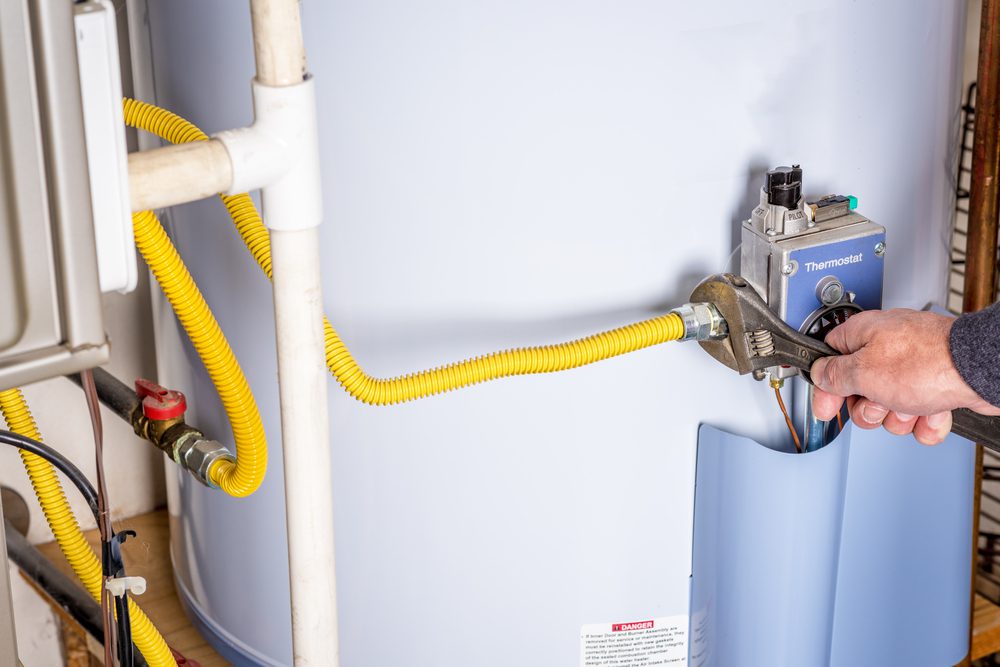Common Water Heater Problems
Common Water Heater Problems
Blog Article
Here in the next paragraph you can find some quality resources pertaining to Common Problems with Your Home Water Heater.

Envision starting your day without your routine warm shower. That already establishes a poor tone for the rest of your day.
Every residence needs a dependable water heater, but just a few know exactly how to handle one. One very easy means to keep your water heater in top form is to check for faults routinely and also fix them as soon as they appear.
Bear in mind to turn off your water heater before sniffing around for mistakes. These are the hot water heater mistakes you are most likely to come across.
Water also hot or as well chilly
Every hot water heater has a thermostat that determines just how hot the water obtains. If the water entering into your residence is as well warm despite setting a hassle-free optimum temperature level, your thermostat may be damaged.
On the other hand, too cold water may result from a stopped working thermostat, a damaged circuit, or improper gas flow. For example, if you make use of a gas water heater with a broken pilot light, you would get cold water, even if the thermostat is in best problem. For electrical heating systems, a blown fuse might be the perpetrator.
Not enough hot water
Hot water heater can be found in many dimensions, depending upon your warm water demands. If you lack hot water before everybody has had a bathroom, your water heater is also small for your family size. You should think about mounting a larger water heater storage tank or going with a tankless hot water heater, which takes up less space and also is a lot more long lasting.
Strange noises
There go to the very least five sort of noises you can learn through a water heater, yet the most common analysis is that it's time for the hot water heater to retire.
To start with, you should recognize with the normal seems a hot water heater makes. An electrical heating unit might appear different from a gas-powered one.
Standing out or banging audios normally suggest there is a slab of sediment in your storage tanks, and it's time to cleanse it out. On the other hand, whistling or hissing sounds may just be your shutoffs allowing some pressure off.
Water leakages
Leakages might originate from pipes, water connections, shutoffs, or in the worst-case circumstance, the tank itself. Gradually, water will corrode the container, and also discover its way out. If this happens, you require to replace your water heater immediately.
Nonetheless, prior to your change your entire container, make sure that all pipes are in place and that each shutoff functions completely. If you still need assistance identifying a leakage, call your plumber.
Rust-colored water
Rust-colored water suggests among your hot water heater components is rusted. Maybe the anode rod, or the tank itself. Your plumber will certainly be able to recognize which it is.
Lukewarm water
Regardless of just how high you established the thermostat, you won't get any kind of hot water out of a heater well past its prime. A hot water heater's efficiency might lower with time.
You will certainly additionally obtain lukewarm water if your pipelines have a cross connection. This implies that when you activate a tap, warm water from the heater streams in alongside normal, cold water. A cross connection is simple to area. If your warm water faucets still pursue closing the water heater shutoffs, you have a cross link.
Discoloured Water
Corrosion is a significant source of dirty or discoloured water. Rust within the water storage tank or a falling short anode rod could cause this discolouration. The anode pole protects the tank from rusting on the within and should be inspected annual. Without a pole or an appropriately functioning anode rod, the warm water promptly wears away inside the storage tank. Contact an expert water heater specialist to determine if changing the anode pole will fix the issue; otherwise, change your water heater.
Conclusion
Ideally, your hot water heater can last 10 years prior to you need a change. Nevertheless, after the 10-year mark, you might experience any one of these faults more frequently. At this moment, you should add a brand-new water heater to your budget.
How To Troubleshoot 3 Common Water Heater Problems in Twin Cities
The Water Heater Is Leaking
A leaky cold water inlet valve A loose pipe fitting A leaky temperature and pressure relief valve A corroded anode rod A cracked tank Turn Off Your Water Heater:
Shut off your gas water heater by turning the gas valve on the unit to the “OFF” position. Shut off your electric water by switching its power off at your electrical panel. Look for a two-pole breaker labeled “water heater” and turn it to the “OFF” position. Move the ball valve connected to the water heater to be perpendicular to the piping at a 90° angle. Look for the Leak:
Depending on whether the water is coming from the tank's top or bottom, you’ll want to look for the leak in different locations.
If the leak comes from the top of the tank, carefully look for water escaping from the cold water inlet valve or loose pipe fittings. Rusted hot and cold water valves can have loose connections with the tank, with water leaking out of them.
https://mspplumbingheatingair.com/blog/how-to-troubleshoot-3-common-water-heater-problems
As a reader about Water Heater Repair and Troubleshooting, I figured sharing that piece of content was really useful. Loved our posting? Please share it. Let someone else discover it. Many thanks for your time. Don't forget to visit our website back soon.
Get the best, call! Report this page